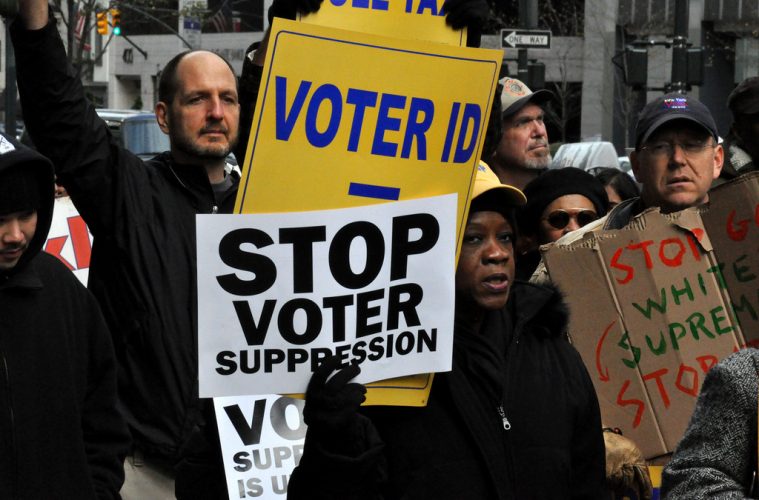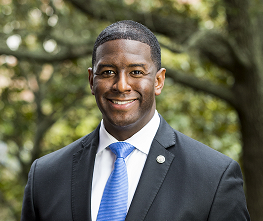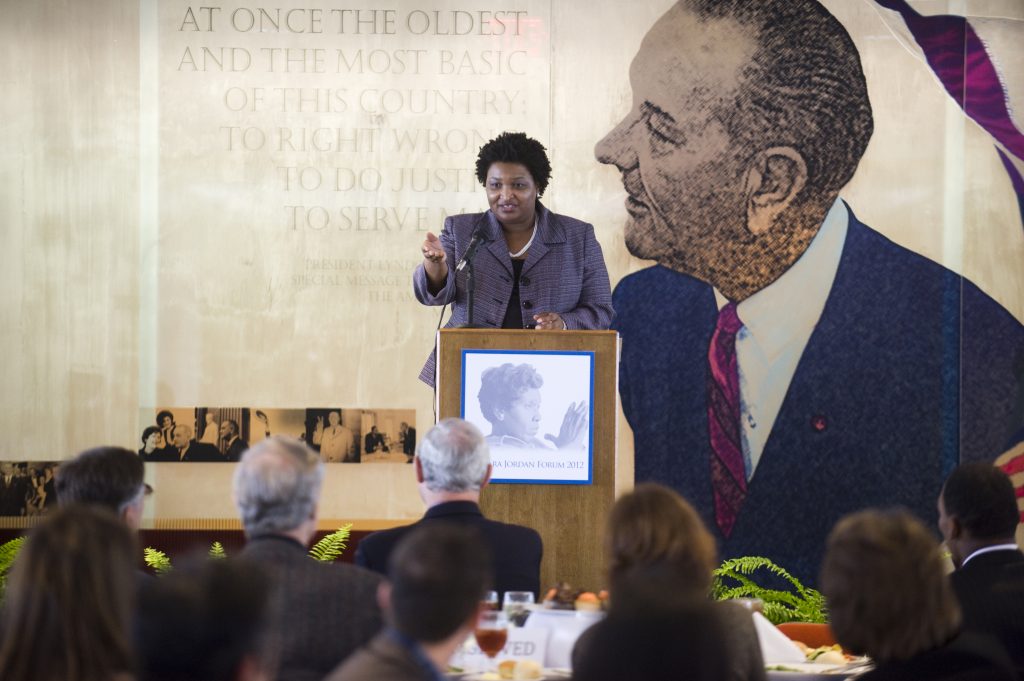By Erin Mayer
November 6, 2018, began with hope and optimism for a brighter future in both Florida and Georgia. The thought of two African Americans, Andrew Gillum in Florida and Stacy Abrams in Georgia, breaking the political glass ceiling stirred up a mix of emotions. For many, this was a bittersweet sensation. Eager and enthusiastic to watch history potentially unfold but saddened that 2018 was the year the country was finally embarking in such a feat.
Having two amazing black candidates on the ballots was enough to give many the feeling that progress was on its way. Sadly, this feeling was short lived as poll results began to trickle in and a sense of shame flooded voters across the South, as many tried to digest possible political losses and the country became aware of allegations of voter suppression and civil injustices.
FLORIDA:
If elected, Tallahassee Mayor, Andrew Gillum, would be the first black major party candidate for governor in Florida history.
The 39- year-old won audiences across the state with his compelling presence and progressive positions. Gillum was open and ran on a campaign that promised to work on abolishing the Immigration and Customs agency, supporting a Medicare-for-all-single payer health system, and impeaching President Trump.
Gillum set himself apart from other candidates by aligning himself with working-class families and individuals. He is the only major candidate not considered a wealthy millionaire. His campaign was prepared to take Florida by raising excitement among black voters in urban areas while gathering the support of those who had grown uncomfortable with the hardened party divisions. Much of this plan worked. Gillum garnered statewide support from liberal voters, African-Americans, and women.
This all changed on election day as news of last-minute polling station location changes were made known. In Broward County, polling stations were relocated to the confines of private gated communities, restricting access to voters who refused to show their identification to nongovernment officials.
Official complaints were made to the office of Broward County Supervisor of Elections, Brenda Snipes, who commented that those complaints hadn’t been made known to her. According to WLRN, Snipes did acknowledge that the gated communities had “declined” to allow certain voters to pass as there was a concern for “the safety of the residents.”
Voters in Pasco County, Boca Raton County, and Orange County also lodged complaints about official polling sites being moved to private locations, such as fitness centers. There were also allegations of voters being turned away for having accents too thick to understand. Even though, Florida Law does not require identification for voters casting provisional ballots. Voters are also not obligated to supply identification to a third party member.
GEORGIA:
Stacey Abrams is Georgia’s first black nominee for governor, an honor that has evaded previous African-American contenders in the state. The Yale Law School graduate is based in Atlanta and wowed voters, both conservative and liberal, with her forward and direct but utterly compassionate style.
The romance novel author ran on the platform that she would expand Medicaid, strengthen the public school system and encourage small business growth. She also focused on addressing Georgia’s high poverty levels, maternal death rates, and the state’s shortage of hospitals in rural areas. Throughout many of her speeches, Abrams utilized both her sense of empathy and writing talents to reach across the aisle and move both hearts and minds. However, her well-placed optimism for a better future couldn’t have prepared voters for what was to come.
When it comes to voting infractions and abuses, no state garners as much attention as Georgia. Allegations of fixed elections have incited a number of lawsuits and claims that state officials are attempting to weaken the voting power of minorities have brought national attention to the state, making it the heart of racial grievances and speculations.
A number of these complaints begin with Brian Kemp, Georgia’s former secretary of state and Republican gubernatorial candidate. Before the election, Kemp angered civil rights advocates and fair voting groups by refusing to leave the office in the name of “election integrity.” Recently, audio recordings of Kemp were leaked to the public with the nominee referring to voter turnout as a problem. On October 9, the Associated Press claimed that Kemp’s office placed roughly 53,000 voter registration forms on the pending list, for not meeting the “exact match” process from voters statewide. Nearly 70% of the detained registrations were reported to be from African Americans voters.
Many conservatives argue that the number of interrupted voter registrations may be exaggerated. However, according to The Brennen Center, Kemp’s office has dismissed an alarming number of voters, many of them being voters of color, in the past five years. Between the years of 2012 and 2016, the office expelled approximately 1.5 million registered voters from voter rolls in Georgia. According to the Associated Press, in 2017 nearly 670,000 voters were eliminated.
Currently, Brian Kemp has a 1.5 percent lead over Stacey Abrams. However, Abrams argues that not all votes have been counted due to voter suppression and manipulation. Abrams recently organized a campaign to contact voters who voted with provisional ballots while Kemp’s side claims the uncounted remaining ballots would still not lead to a victory in Abrams’ favor. Vote totals must be certified in all Georgia counties by Thursday evening.
In Florida, a recount for governor and two other political races was announced by the secretary of state, on Nov. 10. Gillum had conceded defeat on Nov. 6 but following the announcement the democratic nominee publicly said, “I am replacing my words of concession with an uncompromised and unapologetic call we count every single vote.”
As the public waits to see how the final recounts pan out, anguish and deception have been felt throughout the African American communities in both states. Minority groups, who wanted to show how powerful they could be with a ballot in their hand, were blatantly obstructed and stripped of their right to vote.






